Text
The Advantages of Herpes Dating Apps
Navigating the world of dating can be challenging, especially for individuals living with herpes. In recent years, the rise of specialized herpes dating apps has provided a unique and supportive space for those with the condition.
This article explores the advantages of herpes dating apps, shedding light on how these platforms empower users to forge meaningful connections while navigating the complexities of herpes in the dating landscape.
Understanding and Empathy:One of the most significant advantages of herpes dating apps is the creation of a community that understands the challenges of living with the condition. Users share a common ground, creating an environment where empathy and understanding thrive. This shared experience fosters connections that go beyond the physical, emphasizing emotional and mental compatibility.
Reduced Stigma:Herpes dating apps play a pivotal role in destigmatizing the condition by providing a platform where individuals can be open about their status without fear of judgment. This reduction in stigma contributes to a more positive dating experience, allowing users to focus on building connections rather than being burdened by societal misconceptions.
Open Communication:Herpes dating apps encourage open and honest communication about one's health status. This transparency from the outset creates a foundation of trust among users. The ability to discuss herpes openly facilitates conversations about safe practices, managing outbreaks, and addressing concerns, fostering a healthier and more informed dating environment.
Community Support:Herpes-specific dating apps offer more than just a platform for finding romantic partners; they also provide a community of support. Users can engage in discussions, share experiences, and seek advice from others who have faced similar challenges. This sense of community contributes to a supportive network that extends beyond the realm of dating.
Privacy and Confidentiality:Herpes dating apps prioritize user privacy and confidentiality. The dedicated nature of these platforms ensures that individuals can disclose their status with confidence, knowing that their information is handled discreetly. This feature is particularly crucial for those who may be concerned about the potential social repercussions of openly discussing their herpes status.
Educational Resources:Many herpes dating apps offer educational resources to help users better understand the condition. These resources may include information on transmission, prevention, and managing outbreaks. By providing a knowledge base, these apps empower individuals to make informed decisions about their health and relationships.
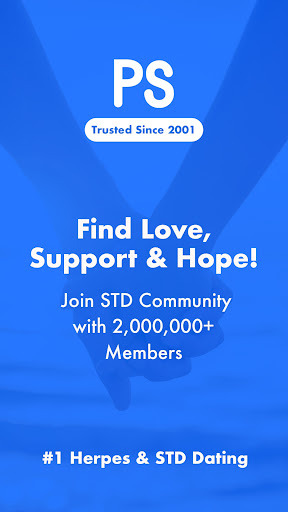
IOS: https://app.appsflyer.com/id1419085637/pid=af20038118
ANDROID: https://app.appsflyer.com/com.stddating.positivesingles/pid=af20038118
Conclusion:
Herpes dating apps have emerged as a powerful tool for individuals seeking love and connection in a world that can be judgmental and stigmatizing. The advantages of these platforms extend beyond the scope of traditional dating apps, offering a supportive community, reducing stigma, and promoting open communication. As society continues to evolve in its understanding of herpes, these apps stand as beacons of inclusivity, providing a space where individuals can embrace their authentic selves and build lasting connections based on empathy, understanding, and shared experiences.
0 notes
Text
What does a herpes breakout look like on a woman?
Generally there is a few days (1-3)of a "prodrome" where there is itching, burning or tingling in the area, then areas of inflammation build up over 1-4 days with redness and pain, then small blisters form over 2-6 days. Following the blister rupturing they heal up over a week or so. The whole thing generally taking less than 2 weeks.
The universe continues to deliver. I've been with one guy since my divorce. He was nice, an excellent lover, and... gave me herpes. He claims he didn't know he had it. "Had some stuff down there but thought it was just a yeast infection." I am inclined to trust him on this, but I'm super disappointed.
This initial outbreak hurts like hell. I have tiny blisters all over my vagina. I have to take opioid painkillers to pee, and even then, the pain only goes down from a 10 to maybe an 8. I had to take a week off work. Apparently, subsequent outbreaks are less painful, but I can't believe I will now be dealing with this periodically for the rest of my life.
Have herpes and feel alone? Meet Nearby Singles with Herpes

PC/MOBILE: https://www.PositiveSingles.com/?tid=af20038118_tu
IOS: https://app.appsflyer.com/id1419085637/pid=af20038118_tu
ANDROID: https://app.appsflyer.com/com.stddating.positivesingles/pid=af20038118_tu
No.1 Herpes Dating Site. Online since 2001. Join FREE
0 notes
Text
How to prevent herpes outbreaks
I am not a medical professional, but I can offer some general information on ways to potentially reduce the frequency and severity of herpes outbreaks.
However, it's important to consult with a healthcare professional for personalized advice. Herpes is a viral infection caused by the herpes simplex virus (HSV), and there are two main types: HSV-1 (commonly associated with oral herpes) and HSV-2 (commonly associated with genital herpes).
Here are some general tips:
Antiviral Medications:
Consult your healthcare provider about antiviral medications. These medications, such as acyclovir, valacyclovir, or famciclovir, can help reduce the frequency and severity of outbreaks.
Avoid Triggers:
Identify and avoid triggers that may contribute to outbreaks. Common triggers include stress, illness, fatigue, hormonal changes, and certain foods.
Healthy Lifestyle:
Maintain a healthy lifestyle with regular exercise, proper nutrition, and adequate sleep. This can help support your immune system and overall well-being.
Stress Management:
Practice stress management techniques, such as meditation, deep breathing, yoga, or other relaxation methods. Stress can contribute to outbreaks, so finding effective ways to manage it is crucial.
Avoid High-Risk Activities:
Avoid activities that may increase the risk of transmission to others or worsen your symptoms. This includes sexual contact during outbreaks and sharing personal items that may come into contact with affected areas.
Safe Sex Practices:
If you have genital herpes, use condoms consistently and correctly during sexual activity to reduce the risk of transmitting the virus to your partner.
Supportive Therapies:
Some people find relief from symptoms by using topical treatments, such as creams or ointments. However, these should be used under the guidance of a healthcare professional.
Regular Medical Check-ups:
Keep regular appointments with your healthcare provider to monitor and manage your condition.
Remember that herpes is a lifelong infection, and while these measures may help manage outbreaks, there is no cure.
Have herpes and feel alone? Meet Nearby Singles with Herpes
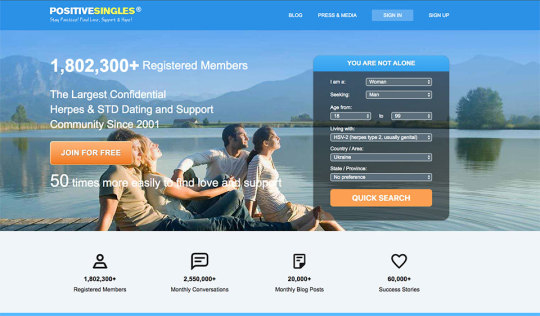
No.1 Herpes Dating Site. Online since 2001. Join FREE
Always consult with a healthcare professional for personalized advice and treatment options based on your specific situation.
#herpes outbreak#gential herpes#hsv2#first herpes outbreak#what causes herpes outbreak#prevent herpes outbreaks
0 notes
Text
How can I protect my partner from herpes?
If you have herpes, there are steps you can take to reduce the risk of transmitting the virus to your partner.
While there is no foolproof method to completely eliminate the risk, a combination of preventive measures can significantly lower the chances of transmission. Here are some strategies:
Communicate Openly:
Have an honest and open conversation with your partner about your herpes status. Discuss the risks, transmission methods, and ways to protect each other.
Use Condoms:
Consistent and correct use of condoms during sexual activity can reduce the risk of herpes transmission. However, it's important to note that condoms do not provide complete protection, as herpes sores can occur outside the condom-protected areas.
Antiviral Medications:
Taking antiviral medications, such as acyclovir, valacyclovir, or famciclovir, as prescribed by a healthcare professional, can help manage symptoms and reduce the frequency of outbreaks. These medications also lower the risk of transmission.
Avoid Sexual Activity During Outbreaks:
Refrain from sexual activity, including kissing and oral sex, during active outbreaks when sores are present. The risk of transmission is higher when symptoms are visible.
Regular Medical Checkups:
Keep regular appointments with your healthcare provider to manage and monitor your herpes. Discuss any concerns or changes in symptoms.
Educate Your Partner:
Provide information to your partner about herpes, including transmission methods, symptoms, and preventive measures. This can help alleviate concerns and foster understanding.
Regular Testing:
Both you and your partner can undergo regular testing for sexually transmitted infections, including herpes. Knowing each other's status can help in making informed decisions about sexual activity.
Avoid Risky Activities:
Be cautious during sexual activities that could lead to skin-to-skin contact, such as genital-to-genital or oral-to-genital contact, especially when symptoms are present.
Remember that no method is 100% effective, and there is still a small risk of transmission even with precautions.
However, by combining several preventive measures, you can significantly reduce the likelihood of passing the virus to your partner.
Have herpes and feel alone? Meet Nearby Singles with Herpes
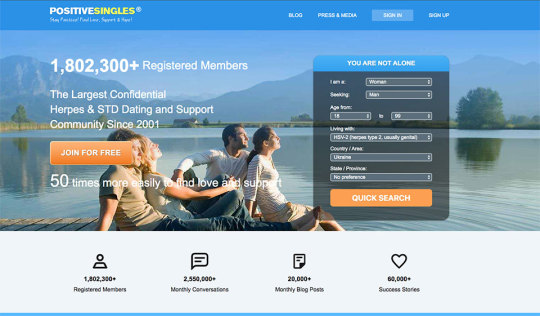
No.1 Herpes Dating Site. Online since 2001. Join FREE
Additionally, maintaining open communication and mutual understanding in your relationship is crucial in navigating the challenges associated with herpes.
If you have specific concerns or questions, consult with a healthcare professional for personalized advice and guidance.
#genital herpes#hsv2#risk of transmitting herpes#lower the chances of herpes transmission#herpes transmission
0 notes
Text
Stages of herpes outbreak photos
Herpes outbreaks typically progress through several stages, although the severity and duration can vary from person to person. The two main types of herpes viruses that cause outbreaks are herpes simplex virus type 1 (HSV-1) and herpes simplex virus type 2 (HSV-2).
Here are the general stages of a herpes outbreak:
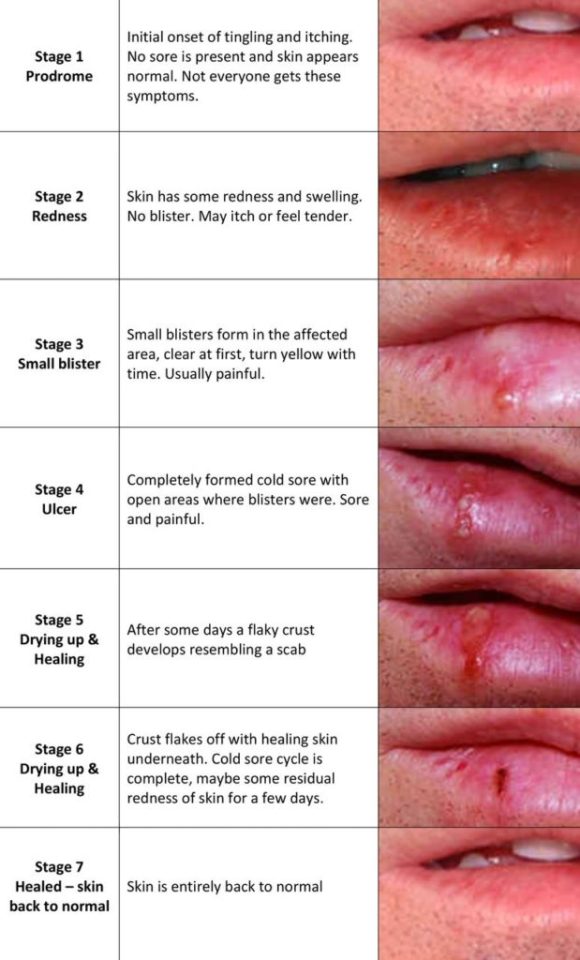
Have herpes and feel alone? Meet Nearby Singles with Herpes

No.1 Herpes Dating Site. Online since 2001. Join FREE
1 note
·
View note
Text
Stages of herpes outbreak
Herpes outbreaks typically progress through several stages, although the severity and duration can vary from person to person. The two main types of herpes viruses that cause outbreaks are herpes simplex virus type 1 (HSV-1) and herpes simplex virus type 2 (HSV-2). Here are the general stages of a herpes outbreak:
Prodrome Stage:
Timing: This is the initial stage before the appearance of visible symptoms.
Duration: It can last for a few hours to a couple of days.
Symptoms: Some people experience tingling, itching, or burning sensations in the area where the outbreak will occur. Flu-like symptoms, such as headache, fever, and muscle aches, may also occur.
Redness and Swelling:
Timing: The affected area may become red and swollen after the prodrome stage.
Duration: This stage can last for a day or two.
Symptoms: The skin may become irritated, and the area where the outbreak is about to occur may appear reddened and swollen.
Blisters or Ulcers:
Timing: Small, fluid-filled blisters or painful sores develop.
Duration: Blisters can last several days, and they may burst and form ulcers.
Symptoms: Blisters are a hallmark of a herpes outbreak. They can be painful and may eventually break open, leading to the formation of ulcers.
Ulcer Stage:
Timing: Ulcers form as blisters break open.
Duration: This stage can last several days.
Symptoms: Open sores or ulcers may be painful and are prone to scabbing.
Crusting and Healing:
Timing: The sores begin to crust over as the healing process starts.
Duration: Crusting may last a few days.
Symptoms: The sores scab over and eventually begin to heal.
Healing and Resolving:
Timing: The body continues the healing process, and symptoms subside.
Duration: Healing can take one to two weeks or longer.
Symptoms: The symptoms gradually subside as the sores heal and the skin returns to normal.
It's important to note that not everyone with herpes experiences the same symptoms or stages, and some people may have very mild outbreaks or no noticeable symptoms at all.
Have herpes and feel alone? Meet Nearby Singles with Herpes
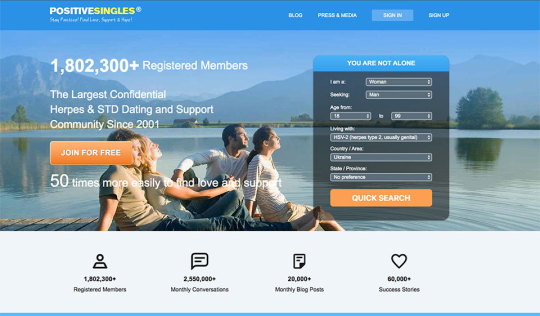
No.1 Herpes Dating Site. Online since 2001. Join FREE
Antiviral medications can help manage symptoms, reduce the duration of outbreaks, and lower the risk of transmission. If you suspect you have herpes or are experiencing symptoms, it's advisable to consult with a healthcare professional for diagnosis and appropriate management.
#hsv2#genital herpes#herpes outbreak#first herpes outbreak#first herpes outbreak female#Stages of herpes outbreak
0 notes
Text
How did I get herpes if I didn't cheat on my partner?
Herpes can be transmitted through various means, and it's not solely linked to infidelity. Understanding how you may have contracted herpes without cheating on your partner involves considering the different ways the virus can be transmitted:
Asymptomatic Shedding: Even when a person with herpes is not experiencing visible symptoms, the virus can still be active and shed from the skin. This shedding can occur at any time, leading to transmission.
Previous Infection: It's possible that you or your partner may have been carrying the virus for a long time without knowing it. Herpes can remain dormant for years before causing symptoms or being diagnosed.
Misdiagnosis or Lack of Awareness: Some individuals may not realize they have herpes, particularly if they have mild or atypical symptoms. Additionally, routine testing for herpes is not always a standard part of sexual health screenings, so someone may not be aware of their infection.
Transmission from a Previous Partner: If you or your partner had a previous sexual partner with herpes, it's possible for the virus to be transmitted to a new partner, even if there are no visible symptoms.
Unintentional Transmission: Transmission can occur even with precautions if there is close intimate contact during periods of viral shedding. Condoms and antiviral medications can help reduce the risk but may not eliminate it entirely.
It's important to approach the situation with understanding and open communication. If you have been diagnosed with herpes and did not knowingly engage in behavior that could lead to infection, consider discussing the situation with your partner. Both of you may benefit from getting tested to understand each other's herpes status and to prevent further transmission.
Have herpes and feel alone? Meet Nearby Singles with Herpes
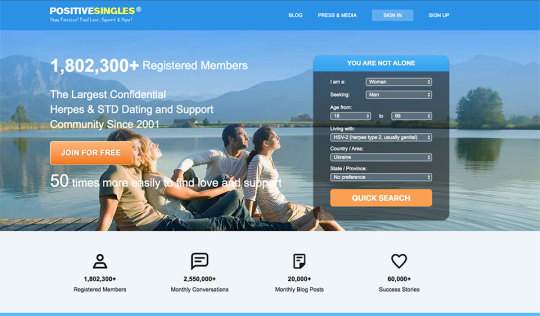
No.1 Herpes Dating Site. Online since 2001. Join FREE
Consulting with a healthcare professional or a sexual health clinic can provide additional guidance, testing options, and information on managing herpes within a relationship. They can also help address any concerns or questions you may have about transmission and diagnosis.
#how did i get herpes#how did i get herpes in a monogamous relationship#hsv2#genital herpes#How did I get herpes without cheating?
0 notes
Text
How do I know who gave me herpes?
Determining who may have given you herpes can be challenging, as the virus can remain dormant for a long time, and symptoms may not appear immediately after infection. Additionally, some people with herpes may not experience noticeable symptoms, making it difficult to pinpoint the source of the infection. Here are a few steps you can consider:
Communication: Have an open and honest conversation with your current and past sexual partners. If you've been diagnosed with herpes, it's important to communicate your diagnosis and discuss each other's sexual health history. Keep in mind that some individuals may not be aware they have herpes, as they may not have noticeable symptoms.
Testing: Encourage your current and past partners to get tested for herpes. Testing can help determine their herpes status, even if they are not currently experiencing symptoms. It's important for both partners to be aware of their sexual health status.
Timing of Symptoms: Consider the timing of your symptoms and outbreaks. If you develop symptoms shortly after a particular sexual encounter, it may provide some clues. However, keep in mind that herpes can have a variable incubation period, and symptoms may not appear immediately after exposure.
Medical Consultation: Speak with a healthcare professional who can provide guidance and additional information. They can offer insights into the transmission of herpes and help you understand the complexities involved.
It's crucial to approach these discussions with sensitivity and understanding. Keep in mind that some individuals may be unaware of their herpes status, and accusing someone without concrete evidence can strain relationships. Encourage open communication, seek testing, and work together to manage the situation.
Have herpes and feel alone? Meet Nearby Singles with Herpes
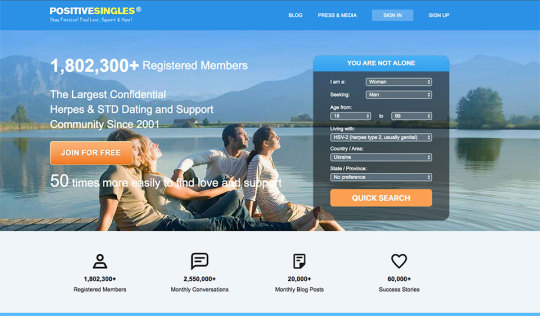
No.1 Herpes Dating Site. Online since 2001. Join FREE
If you're concerned about your sexual health or have questions about herpes, consult with a healthcare professional or a sexual health clinic. They can provide guidance on testing, treatment, and how to navigate discussions with your partners.
#hsv2#herpes#hsv#std#gential herpes#how did i get herpes#how did i get herpes in a monogamous relationship#who gave me herpes
0 notes
Text
Can you get herpes after 10 years of marriage or monogamy?
Yes, it's possible to contract herpes after many years of marriage or monogamy. While being in a long-term monogamous relationship can reduce the risk of acquiring sexually transmitted infections, it does not eliminate the risk entirely. Herpes, caused by the herpes simplex virus (HSV), can be transmitted even in long-term relationships.
Here are a few reasons why this can happen:
Asymptomatic Shedding: Even when a person with herpes is not experiencing noticeable symptoms, the virus can still be active and shed from the skin. This shedding can potentially lead to transmission, even if there are no visible signs of an outbreak.
Prior Infection: One partner may have been carrying the herpes virus for a long time without knowing it. The virus can remain dormant for years before causing symptoms or being diagnosed.
Misunderstanding or Lack of Testing: Some individuals may not realize they have herpes, especially if they have mild or atypical symptoms. Additionally, routine testing for herpes is not always a standard part of sexual health screenings, so someone may not be aware of their infection.
Breakdown in Communication: In some cases, individuals may not disclose their herpes status to their partner, knowingly or unknowingly. Open and honest communication about sexual health is crucial in maintaining a healthy relationship.
It's important to remember that herpes is a common and manageable infection. If one partner is diagnosed with herpes, it's essential to communicate openly, seek medical advice, and take appropriate precautions to reduce the risk of transmission.
This may include the use of antiviral medications, practicing safe sex, and maintaining good communication about sexual health within the relationship.
Have herpes and feel alone? Meet Nearby Singles with Herpes
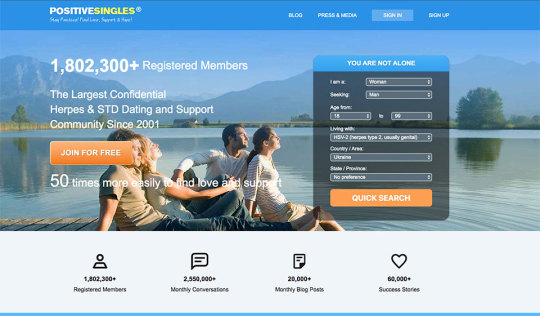
No.1 Herpes Dating Site. Online since 2001. Join FREE
Regular testing for sexually transmitted infections can also contribute to a healthier sexual relationship by providing clarity about each partner's status.
#hsv2#herpes#genital herpes#hsv#std#gential herpes#How did I get herpes in a monogamous relationship#how did I get herpes
0 notes
Text
Can someone with herpes have a normal relationship?
Yes, someone with herpes can absolutely have a normal and healthy relationship. Herpes is a common and manageable condition, and many people with the virus lead fulfilling lives, engage in meaningful relationships, and have successful partnerships.
Open communication is key in any relationship, and discussing your health status, including herpes, with your partner is important. Providing accurate information about the virus, how it is transmitted, and the precautions that can be taken to reduce the risk of transmission can help build trust and understanding.
Here are some important points to consider:
Education: Learn as much as you can about herpes. Knowing how the virus is transmitted, the different types of herpes (HSV-1 and HSV-2), and treatment options will empower you to make informed decisions and educate your partner.
Communication: Be open and honest with your partner about your herpes status. Discuss any concerns or questions they may have and encourage them to ask questions as well. Clear communication is crucial for maintaining trust.
Precautions: While there is no cure for herpes, antiviral medications can help manage symptoms and reduce the risk of transmission. Using condoms and taking medications as prescribed by a healthcare professional can further minimize the risk.
Support: Seek support from healthcare professionals, support groups, or counseling if needed. Having a strong support system can make it easier to cope with the emotional aspects of living with herpes.
Remember, having herpes does not define a person, and many individuals with the virus lead normal, happy, and healthy lives. Building a strong foundation of trust, communication, and understanding in a relationship can help overcome the challenges associated with herpes and allow both partners to enjoy a fulfilling and supportive connection.
Have herpes and feel alone? Meet Nearby Singles with Herpes
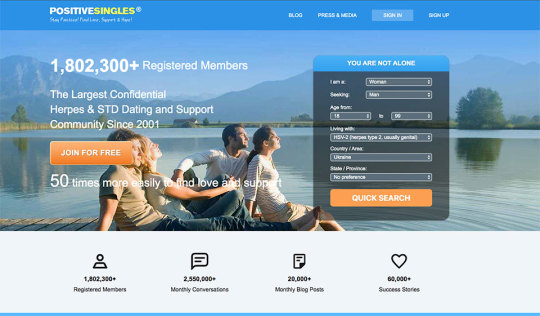
No.1 Herpes Dating Site. Online since 2001. Join FREE
0 notes
Text
Is herpes a deal breaker for guys
The impact of herpes on a relationship can vary from person to person. Herpes is a common sexually transmitted infection caused by the herpes simplex virus (HSV), and it comes in two main types: HSV-1 (commonly associated with oral herpes) and HSV-2 (often linked to genital herpes).
Whether herpes is a deal breaker for someone depends on their personal beliefs, values, and level of education about the infection. It's essential to communicate openly and honestly with your partner about your health status, and this applies to any sexually transmitted infection, not just herpes.
Some individuals may be more accepting and understanding, especially if they are well-informed about the virus and its transmission. Others may have concerns or fears about contracting the virus, despite the fact that many people with herpes lead healthy and fulfilling lives.
If you or your partner has herpes, consider having a conversation about it, sharing information about the virus, its transmission, and the steps you can take to reduce the risk of spreading it. Open communication, trust, and education can play crucial roles in maintaining a healthy relationship. Additionally, using protection, such as condoms, and taking antiviral medications as prescribed by a healthcare provider can help manage the risk of transmission.
Ultimately, each person's perspective on whether herpes is a deal breaker will vary, so it's important to have respectful and understanding conversations to ensure both partners are on the same page.
Have herpes and feel alone? Meet Nearby Singles with Herpes

No.1 Herpes Dating Site. Online since 2001. Join FREE
0 notes
Text
How long does the first Herpes outbreak last?
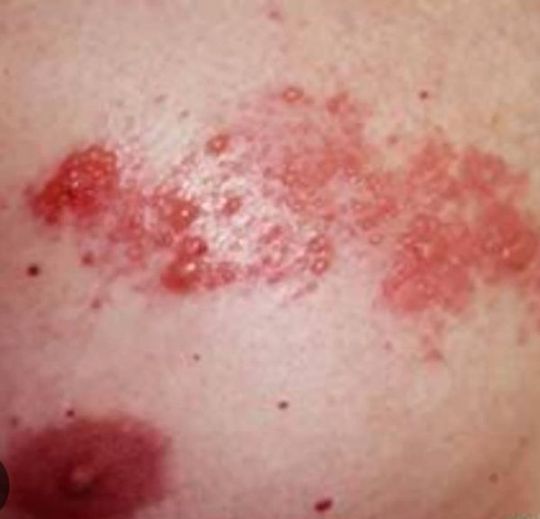
The duration of the first herpes outbreak can vary from person to person, but it typically lasts longer than subsequent outbreaks. The initial outbreak is often more severe because the immune system has not yet developed specific antibodies to control the herpes simplex virus (HSV).
The initial outbreak can last from 2 to 4 weeks in most cases, but it can vary. Some people may experience a shorter or longer duration.
Have herpes and feel alone? Meet Nearby Singles with Herpes

No.1 Herpes Dating Site. Online since 2001. Join FREE
If you suspect you have genital herpes or oral herpes and are experiencing symptoms for the first time, it is crucial to seek medical attention for a proper diagnosis and guidance on managing the symptoms.
Antiviral medications may be prescribed to help alleviate symptoms and reduce the duration of the outbreak. Additionally, healthcare professionals can provide information on managing the condition and preventing transmission to others.
0 notes
Text
How to keep herpes dormant?
While it's not possible to completely eliminate the herpes simplex virus (HSV) from the body, there are steps you can take to help manage and reduce the frequency of outbreaks, thereby keeping the virus in a dormant or less active state.
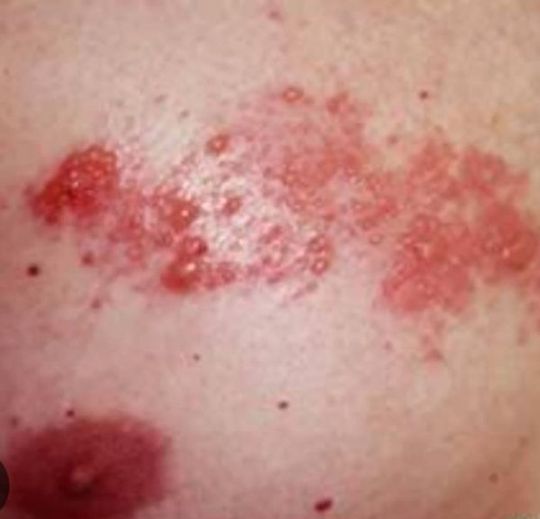
Here are some general recommendations:
Antiviral Medications: Prescription antiviral medications, such as acyclovir, valacyclovir, and famciclovir, can help control herpes outbreaks and reduce their frequency. These medications are most effective when taken consistently as prescribed by a healthcare professional.
Stress Management: Since stress is a known trigger for herpes outbreaks, finding effective stress management techniques can be beneficial. This may include activities such as exercise, meditation, yoga, or counseling.
Maintain a Healthy Immune System: A strong immune system is crucial for keeping the herpes virus in check. Adopting a healthy lifestyle, including regular exercise, a balanced diet, and adequate sleep, can help support your immune system.
Avoid Triggers: Identify and avoid specific triggers that may contribute to herpes outbreaks. This could include managing stress, avoiding excessive sunlight exposure, and addressing other factors that may be relevant to your individual situation.
Use Sunscreen: If sunlight is a trigger for oral herpes (cold sores), using sunscreen on your lips and face may help prevent outbreaks triggered by UV light exposure.
Limit Alcohol and Caffeine: Some individuals find that reducing alcohol and caffeine intake helps in managing herpes outbreaks.
Practice Safe Sex: If you have genital herpes, practicing safe sex by using condoms consistently and correctly can reduce the risk of transmitting the virus to your partner and may also help manage the frequency of outbreaks.
Regular Medical Check-ups: Regular check-ups with a healthcare professional can help monitor your overall health and discuss any concerns or changes in your condition.
Have herpes and feel alone? Meet Nearby Singles with Herpes
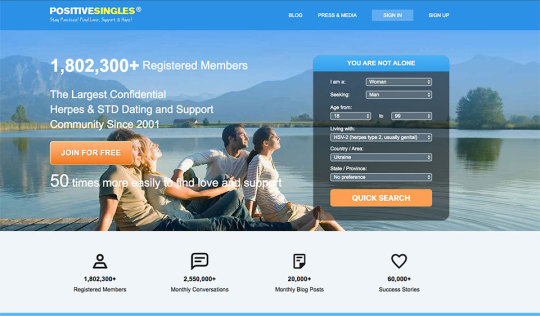

No.1 Herpes Dating Site. Online since 2001. Join FREE
It's important to note that while these strategies may help manage herpes outbreaks, there is no cure for herpes, and the virus may still be present in the body. Consult with a healthcare professional for personalized advice and a treatment plan tailored to your specific situation.
0 notes
Text
What causes frequent herpes outbreaks?
Frequent herpes outbreaks are primarily caused by the herpes simplex virus (HSV), either HSV-1 or HSV-2. Once a person is infected with the herpes virus, it remains in the body for life and can periodically reactivate, leading to outbreaks of symptoms.
The exact reasons for the recurrence of outbreaks can vary from person to person.
Here are some common factors that may contribute to frequent herpes outbreaks:
Stress: Emotional or physical stress is a well-known trigger for herpes outbreaks. Stress weakens the immune system, making it more difficult for the body to suppress the virus.
Weakened Immune System: A compromised immune system, whether due to another illness, medical treatments (such as chemotherapy), or conditions like HIV/AIDS, can increase the likelihood of herpes outbreaks.
Illness or Infection: Other infections or illnesses can place stress on the immune system, potentially leading to the reactivation of the herpes virus.
Trauma or Injury: Physical trauma or injury to the affected area can trigger a recurrence of symptoms.
Menstrual Cycle: Some women may experience more frequent outbreaks around the time of their menstrual cycle.
Ultraviolet (UV) Light Exposure: Exposure to strong sunlight or artificial UV light can trigger oral herpes outbreaks (cold sores).
Hormonal Changes: Changes in hormone levels, such as those during pregnancy, may influence the frequency of outbreaks.
Have herpes and feel alone? Meet Nearby Singles with Herpes
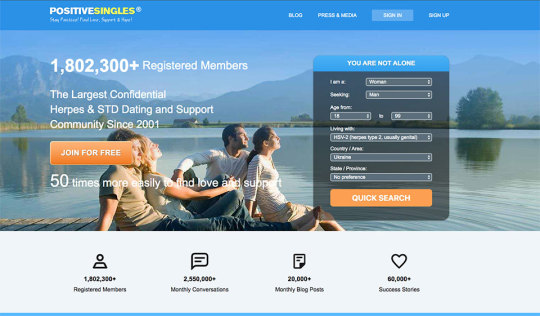
No.1 Herpes Dating Site. Online since 2001. Join FREE
It's important to note that triggers can vary among individuals, and not everyone will experience outbreaks for the same reasons. Antiviral medications, such as acyclovir, valacyclovir, or famciclovir, are often prescribed to manage and reduce the frequency of outbreaks.
If you are experiencing frequent herpes outbreaks, it is advisable to consult with a healthcare professional for an accurate diagnosis and appropriate treatment.
#hsv2#genital herpes#hsv#herpes outbreak#first herpes outbreak#herpes sore#herpes outbreak how often
0 notes
Text
What should you not do during a herpes outbreak?
During a herpes outbreak, it's important to take steps to avoid exacerbating symptoms and prevent the spread of the virus. Here are some things you should avoid during a herpes outbreak:
Avoid Sexual Activity:
Refrain from sexual activity, including vaginal, anal, and oral sex, during an outbreak. This helps prevent the transmission of the virus to your partner.
Do Not Touch Sores:
Avoid touching or picking at herpes sores. This can worsen symptoms, delay healing, and increase the risk of spreading the virus to other parts of your body or to others.
Avoid Tight or Irritating Clothing:
Wear loose-fitting, comfortable clothing to minimize friction and irritation in the affected area.
Avoid Harsh Soaps and Cleansers:
Use mild, fragrance-free soap and avoid harsh cleansers that may irritate the sores.
Do Not Share Personal Items:
Avoid sharing personal items such as towels, razors, or eating utensils to prevent the spread of the virus.
Avoid Oral Contact:
Avoid kissing or engaging in oral sex during an oral herpes (cold sore) outbreak to prevent spreading the virus to the mouth or genitals.
Don't Use Harsh Topical Treatments Without Guidance:
Consult with your healthcare provider before using any topical treatments, as some may exacerbate symptoms or cause additional irritation.
Do Not Ignore Hygiene Practices:
Maintain good hygiene practices by keeping the affected area clean, but be gentle in cleaning to avoid further irritation.
Avoid Stress:
While it's not always possible to eliminate stress, try to manage and reduce stress levels, as stress can trigger or worsen herpes outbreaks.
Do Not Share Towels or Washcloths:
Avoid sharing towels, washcloths, or other personal items with others to prevent the spread of the virus.
Avoid Certain Foods:
Some individuals find that certain foods, such as those high in arginine (chocolate, nuts, seeds), may trigger outbreaks. Consider adjusting your diet based on your personal triggers.
Don't Skip Medications:
If prescribed antiviral medications, take them as directed by your healthcare provider. Skipping doses may reduce their effectiveness.
Have herpes and feel alone? Meet nearby singles with herpes.
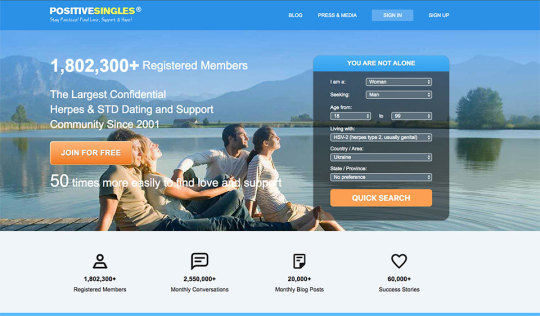
No.1 Herpes dating and support website. Join for FREE.
It's crucial to remember that herpes is a contagious virus, and taking precautions during an outbreak can help prevent transmission to others. Additionally, seek guidance from your healthcare provider for personalized advice on managing herpes symptoms and outbreaks.
0 notes
Text
How do you stay comfortable with a herpes outbreak?
Managing a herpes outbreak involves strategies to stay physically and emotionally comfortable. Here are some tips:
Use Comfortable Clothing:
Wear loose-fitting, breathable clothing made of natural fabrics like cotton to minimize irritation.
Choose underwear that is soft and not too tight.
Practice Good Hygiene:
Keep the affected area clean by washing gently with mild soap and water.
Avoid harsh cleansers and scrubbing, as this can worsen irritation.
Pat the area dry rather than rubbing.
Pain Relief:
Over-the-counter pain relievers, such as acetaminophen or ibuprofen, can help alleviate pain and reduce inflammation.
If prescribed by your healthcare provider, use antiviral medications as directed.
Topical Treatments:
Consider using topical creams or ointments recommended by your healthcare provider to relieve itching and discomfort.
Cool Compresses:
Apply cool compresses or ice packs wrapped in a cloth to the affected area to reduce inflammation and soothe discomfort.
Stay Hydrated:
Drink plenty of water to stay hydrated, which supports overall well-being.
Rest and Relaxation:
Get adequate rest to support your immune system and aid in healing.
Practice stress-reduction techniques, such as deep breathing or meditation, to manage stress, which can be a trigger for outbreaks.
Avoid Triggering Factors:
Identify and avoid factors that may trigger outbreaks, such as stress, excessive sunlight, or certain foods.
Distract Yourself:
Engage in activities that can distract you from discomfort, such as watching a movie, reading, or spending time with supportive friends and family.
Seek Emotional Support:
Reach out to friends, family, or a support group to share your feelings and concerns. Emotional support is crucial during this time.
Consult with Healthcare Provider:
If you have questions or concerns about managing symptoms, consult with your healthcare provider. They can provide guidance tailored to your specific situation.
Have herpes and feel alone? Meet nearby singles with herpes.
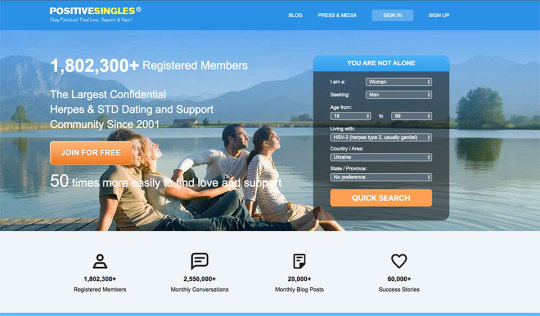
No.1 Herpes dating and support website. Join for FREE.
Remember that everyone's experience with herpes is unique, and what works for one person may not work for another. It's important to consult with a healthcare professional for personalized advice and appropriate medical care. If you're struggling emotionally, consider talking to a mental health professional who can provide additional support.
#hsv2#genital herpes#herpes outbreak#first herpes outbreak female#first herpes outbreak women#first herpes outbreak#herpes sore#herpes
0 notes
Text
How to heal herpes sores faster
While there is no cure for herpes, there are several strategies that may help promote faster healing of herpes sores and alleviate symptoms.
It's crucial to consult with a healthcare professional for personalized advice, especially if you are considering any over-the-counter or home remedies.
Here are some general tips that may help:
Antiviral Medications: Prescription antiviral medications, such as acyclovir, valacyclovir, or famciclovir, can help reduce the severity and duration of herpes outbreaks. Take the medication as prescribed by your healthcare provider.
Keep the Sores Clean: Gently clean the affected area with mild soap and water. Avoid harsh cleansers or abrasive materials, as they can cause irritation.
Apply Topical Treatments: Over-the-counter creams or ointments containing docosanol or lidocaine may provide relief from itching and discomfort. Consult with your healthcare provider before using any topical treatments.
Use Cold Compresses: Applying cold compresses or ice packs to the sores can help reduce inflammation and provide temporary relief. Be sure to wrap the ice pack in a cloth to avoid direct contact with the skin.
Keep the Area Dry: Moisture can prolong healing time. Wear loose-fitting clothing and avoid excessive moisture in the affected area.
Pain Relief Medications: Over-the-counter pain relievers, such as acetaminophen or ibuprofen, may help alleviate pain and reduce inflammation. Follow the recommended dosage guidelines.
Stay Hydrated: Drink plenty of water to stay hydrated, which can support overall healing and well-being.
Avoid Triggering Factors: Identify and avoid factors that may trigger outbreaks, such as stress, excessive sunlight, or certain foods.
Get Adequate Rest: Ensure you get enough rest to support your immune system, as fatigue can contribute to outbreaks.
Consider Dietary Supplements: Some people find that certain dietary supplements, such as lysine or zinc, may help manage herpes symptoms. However, scientific evidence on their effectiveness is limited, and it's essential to consult with a healthcare provider before using supplements.
Have herpes and feel alone? Meet nearby singles with herpes.
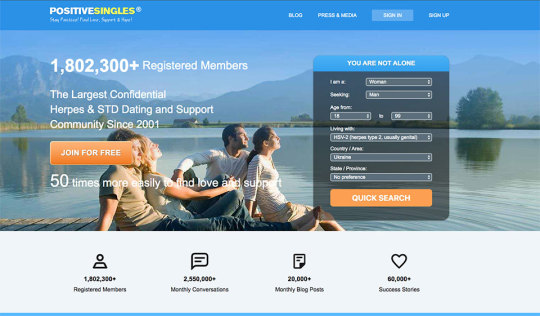
No.1 Herpes dating and support website. Join for FREE.
It's crucial to remember that these tips may help manage symptoms, but they do not cure herpes. If you have concerns about herpes outbreaks or need guidance on managing symptoms, consult with a healthcare professional for appropriate medical advice.
1 note
·
View note